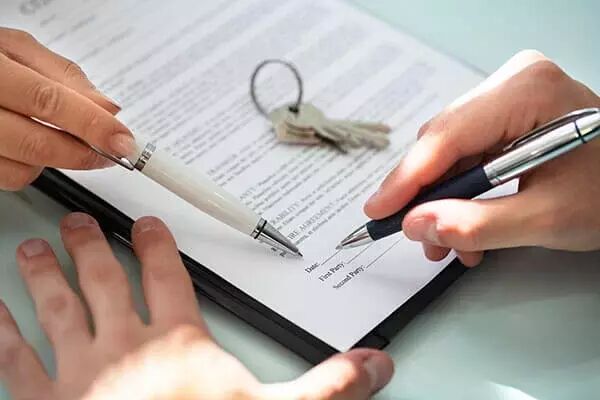Conveyancer Fundamentals Explained
Conveyancer Fundamentals Explained
Blog Article
The Basic Principles Of Conveyancer
Table of ContentsThe Of ConveyancerThe Only Guide to ConveyancerNot known Details About Conveyancer Conveyancer Fundamentals Explained
The expenses are imposed based on the Law Culture's tariff standards. A Conveyancer needs to: At all times shield the interest of his/her customers and based on the signed Sale Arrangement; Keep all events informed of the progression on their purchase and notify both events of the conveyancing procedure and processes; Encourage the celebrations on the conditions of the Sale Contract, specifically concerning suspensive problems and responsibilities; Advise the vendor on the termination of his bond, any charges, notice durations and various other management charges which may affect the settlement number; Get the vendor's written instructions before he/she, as the Conveyancer, concerns any guarantees in respect of the deal; Do every little thing in his/her power to register the transaction on or as close as possible to the date concurred to in the Sale Contract; Encourage both events on their commitments in regards to their Sale Arrangement, so regarding ensure that the transfer is not delayed unnecessarily; Meet with both parties to authorize the applicable documentation connecting to the deal Prepare the actions for lodgement with the utmost treatment, so regarding make certain that they reduce the threat of a rejection of the paperwork by the relevant Acts Registry; Inform both parties of the transfer on the date of registration; Account to both parties for finances relating to the transaction within 2/ 3 days complying with successful registration of the transaction in the applicable Deeds Computer registry.It belongs to your conveyancer's job to work with a negotiation time with the various other side's legal representative, throughout which time the building is formally transacted and all paperwork and cheques are turned over. Upon negotiation, your conveyancer will make call with you and/or your actual estate agent to confirm negotiation and permit tricks to be turned over.
No one intends to experience a demanding or frustrating situation when you must just be excited for your following step. This is where conveyancing can aid the process to relocate along properly. The function of a residential property conveyancer is to manage this lawful process of moving the ownership and title of a residential or commercial property from the vendor to the purchaser.
Yet lawyers typically have a variety of areas they have proficiency in, with conveyancing perhaps being an area they do not practise in frequently. The advantage of using a home conveyancer is that residential or read more commercial property purchases are what they carry out on a regular basis. They understand the procedure inside and out and are extremely knowledgeable about it, guaranteeing all appropriate documentation is provided and the process is precise and prompt.
The Basic Principles Of Conveyancer

Picking an option for no other reason than it's less expensive might create more problems in the long term with an unreliable or ineffective service. Seek a fixed rate service so you recognize specifically what the process will cost you and whether it suits your scheduled budget plan. Suggestions from pals or family members, or reading online reviews can likewise serve in finding a knowledgeable and effective conveyancer.

Conveyancing lawyers and qualified conveyancers both look after the conveyancing procedure. Conveyancer. Their professional backgrounds vary. A conveyancing lawyer is a person that is a fully qualified lawyer (as a member of the Regulation Society) and who is experts in conveyancing. A home solicitor will commonly often tend to have experience in other legal locations also.

An Unbiased View of Conveyancer
They liaise with numerous events, including the estate agent, vendor's conveyancer, news and neighborhood authorities. The conveyancing procedure begins when an offer on a residential property is approved.
Home searches offer an objective in the conveyancing process. The buyer's solicitor arranges these checks to reveal possible issues with the home.
Neighborhood authorities might provide insight into nearby future advancements that may influence the residential or commercial property's value. Home loan loan providers commonly call for details searches prior to releasing a mortgage offer. While some searches might appear optional, omitting them could lead to unforeseen issues. A building's title acts stand for a historical document of its possession.
The Ultimate Guide To Conveyancer
This contract pack consists of essential papers like the property details form, the leasehold info kind, and the fittings and components create. At this stage, building law considerations emerge, from shared gain access to civil liberties to what fixtures come with the residential property.
On this day, the purchaser pays the continuing to be equilibrium, and the vendor moves the property keys. There's typically a space in between exchange and conclusion for purchasers to settle details or make arrangements.
Report this page